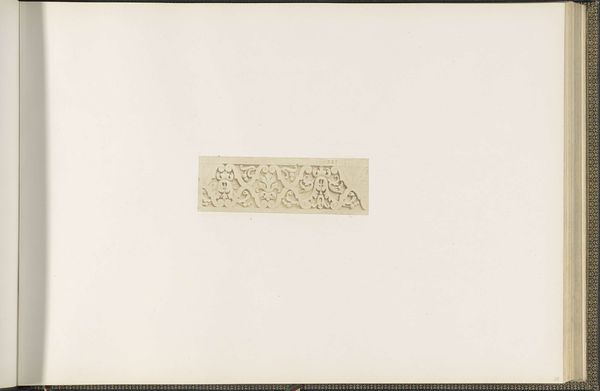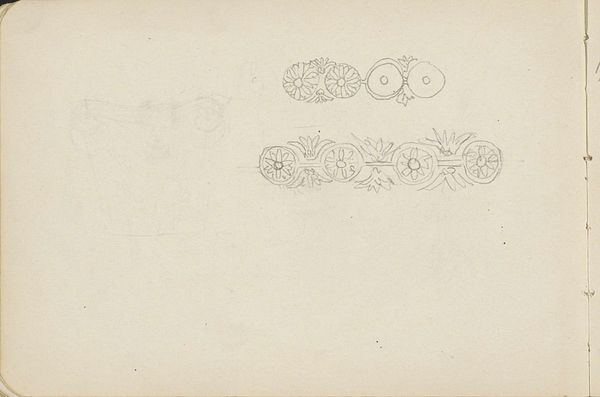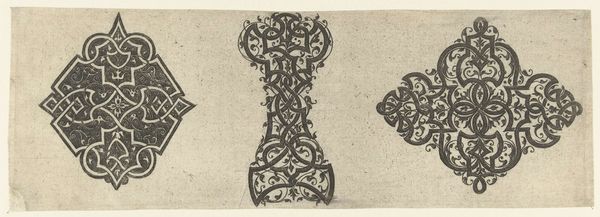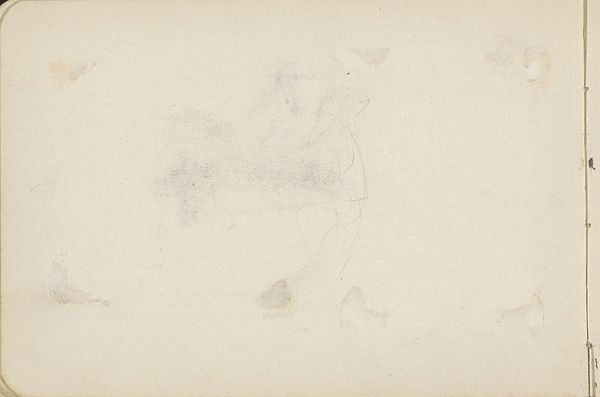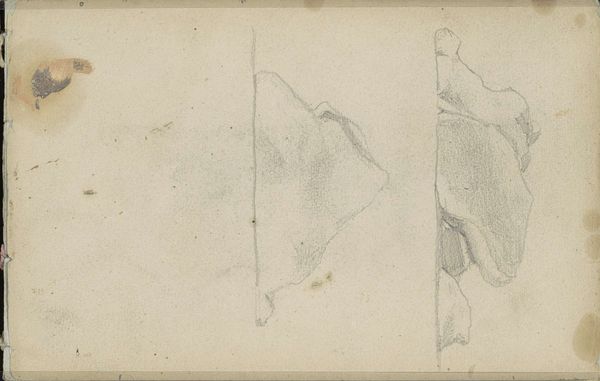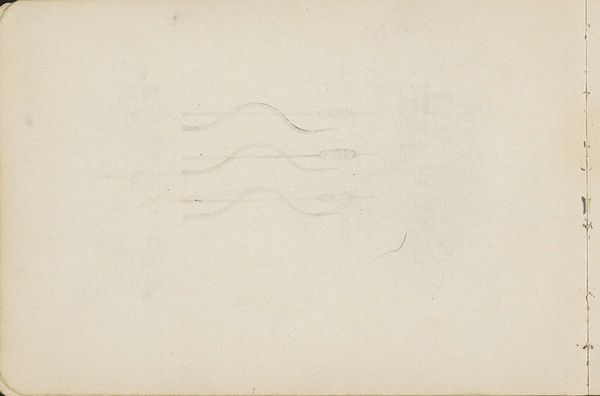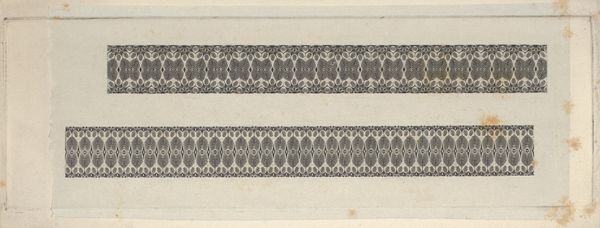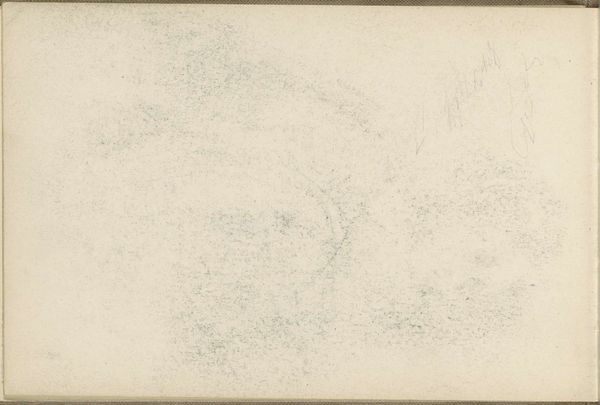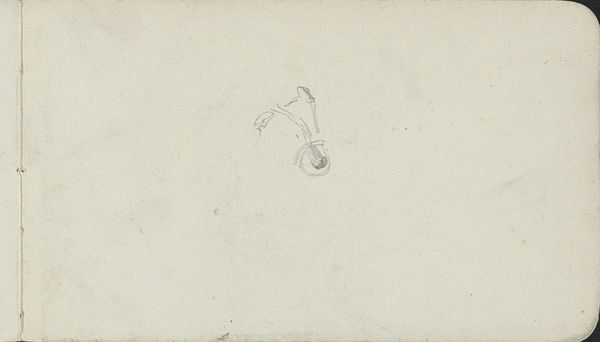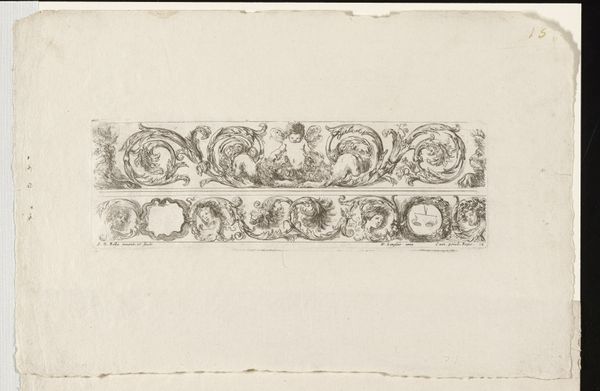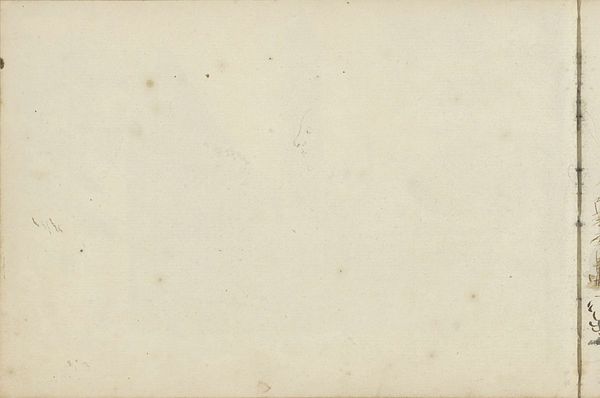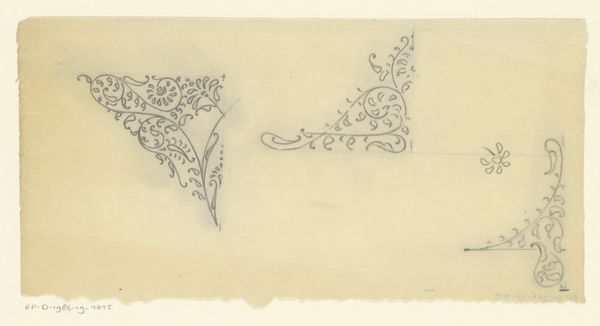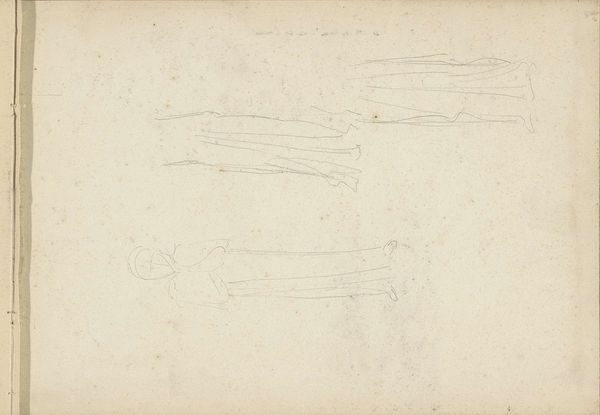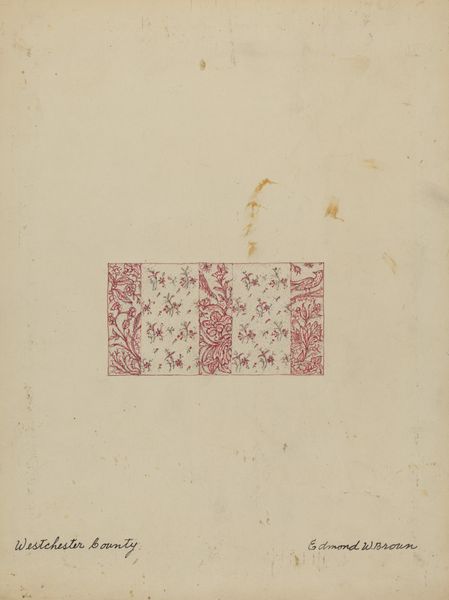
drawing, paper, watercolor, ink
#
drawing
#
art-nouveau
#
water colours
#
paper
#
watercolor
#
ink
#
geometric
#
line
#
watercolor
Copyright: Rijks Museum: Open Domain
Editor: This is “Ornamenteel patroon,” or Ornamental Pattern, a drawing by Julie de Graag from around 1894. It’s made with watercolor and ink on paper and resides at the Rijksmuseum. There’s something both delicate and very controlled about it that catches my eye. What do you see in this piece? Curator: It strikes me as a beautiful example of how the Art Nouveau movement intersected with ideas about national identity and craft. De Graag, though working within an international style, also taps into a sense of Dutch design, perhaps alluding to traditional crafts through geometric motifs. What was the purpose of these kinds of preliminary sketches? Were they purely aesthetic, or were they intended to be replicated in other media? Editor: That's fascinating! So, were these patterns typically for textiles or maybe architecture, then? Was there a hierarchy in art back then, like drawings weren’t seen as ‘high art’? Curator: Exactly! Drawings were often viewed as studies, steps toward a “finished” work like a painting or sculpture, or perhaps a decorative object. But consider the Arts and Crafts movement at the same time, which aimed to elevate craft. So where does this fit? This piece challenges those hierarchies by showcasing the artistic merit of a design drawing. And yes, this could very well have served as a design for textiles or architectural details. De Graag is engaging with social questions of art and use. Editor: It's amazing how a seemingly simple drawing can open up a whole world of ideas about art, craft, and society at the time. It makes me think about the value we place on different kinds of creative work even today. Curator: Indeed. Examining its historical context allows us to better understand its present resonance.
Comments
No comments
Be the first to comment and join the conversation on the ultimate creative platform.
